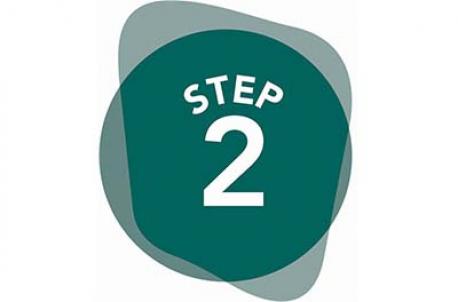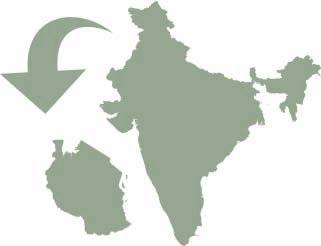
Which people/groups are most likely to make this change happen?
Why are they best placed to do so?
The success of a knowledge exchange initiative depends on having the right people involved. First, think about those who have a stake in the issue. Then, consider those who can and will initiate the actions needed to achieve the change objective. These change agents can belong to different stakeholder groups (government, civil society, private sector, academia) and be at the executive, managerial, professional/technical level or a combination (Table 1). What they have in common is the ability to lead, influence, convene, or act on the institutional challenge. Sometimes individuals are not yet aware of the vital role they can play. In these cases you may need to inspire them to become change agents.

Identifying Participant Profiles
To begin, talk to your clients about possible groups of people who are needed to achieve change. Ask:
Who will Lead?
- Who will champion the cause and make the envisioned changes happen?
- Who can give momentum and enthusiasm to the knowledge exchange?
Who will Influence?
- Who are opinion leaders on the topic?
- Who has a broad professional network across the various stakeholders?
Who will Convene?
- Who has the capacity to bring people together to discuss the topic?
Who will Act?
- Who is in a position to apply what they learn? And will this help realize the change objective?

Putting people with diverse backgrounds and perspectives together can result in a powEexrfcuhl alenagrening experience as well as inspire networks that continue long after the knowledge exchange initiative has ended.
Profiles of Potential Change Agents
| Stakeholder Groups | Potential Change Agents | ||
| Executive Level | Managerial Level | Technical/Professional Level | |
|
Government Agency
|
Ministers Vice ministers Agency heads Directors |
Managers Program leaders |
Technical specialists Team leaders Program staff |
| Governing Body/Parliament/Congress | Elected officials/Parliamentarians | Senior aides Senior commitee staff |
Analysts Office Staff |
| Civil Society Groups/NGOs | CEO/President DirectorsBoard members |
Managers Program leaders |
Technical specialists Team leaders Program staff |
|
Private Sector
|
CEO/President Vice Presidents/ Directors Board members |
Managers Program leaders |
Team leaders Staff |
| Media | Chief editor News director |
Section editors Producers |
Journalists |
| Academia | President Directors Board members |
Program leaders Department heads |
Professors Students |
The following example highlights the role of change agents and the direct result of a knowledge exchange initiative.
Role of a Change Agent
Energy efficiency had always been the poor and neglected child of energy policy in Chile. The common thinking was, “If it is economical, then the market will take care of it.” The result? Few private initiatives, an insignificant public budget, and the occasional project financed with international cooperation. In the mid-2000s things started to change when the Minister of the National Energy Commission appointed a small team to work on energy efficiency. When a new Minister came on board, the team’s challenge was to garner his political support to continue and scale up the good work that had been initiated by his predecessor. They devised a knowledge exchange strategy where the Minister would go on a study tour to California to see for himself the importance of energy efficiency. During the study tour he met with government officials and utility experts in charge of designing and implementing energy frameworks, incentives, and programs. The result? The Minister became a champion of energy efficiency, making it a key pillar of Chile’s energy policy and dedicating the majority of the Commission’s budget to support it. With this support, Chile’s Energy Efficiency Program rose to win the International Energy Efficiency Visionaries Award from the Alliance to Save Energy in 2010.
Story contributed by Ivan Jaques, Senior Energy Specialist, Energy Sector Management Assistance Program (SEGES), The World Bank.

Selecting participants is a juggling act. The list of knowledge exchange participants will change again and again as your planning progresses. This is a natural part of the process, so don’t get discouraged. Tailoring the exchange to the capacity needs of the participants is what is most important. At the same time, be careful not to lose sight of the change objective.

Tanzania and India Exchange — Participant Profiles
- Representatives from Tanzania’s National Dairy Board and the Ministry of Agriculture. These institutions are responsible for dairy policies and sector oversight and are uniquely suited to improve the operational efficiency of dairy supply chains.
- Leading dairy producers, processors, and distributors, who were the people who could push for greater reforms and would eventually benefit from having a better system.

Honduras, Nicaragua, and Colombia Exchange — Participant Profiles
- Representatives of key public agencies in the land titling and land regulatory framework, which would be responsible for implementation.
- Representatives of public agencies involved in the recognition and protection of indigenous rights. Participants from these agencies are crucial in maintaining consistency in the national policy towards indigenous people.
- Representatives of the Miskito community, who would have the opportunity to learn about other models, network internationally with other indigenous federations, participate directly in the drafting of policy affecting their rights, and build a working relationship with their government counterparts.

 China
China Colombia
Colombia Denmark
Denmark India
India Indonesia
Indonesia Mexico
Mexico Russian Federation
Russian Federation Spain
Spain United Kingdom
United Kingdom